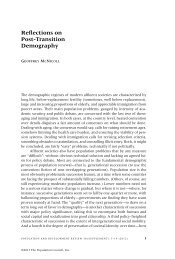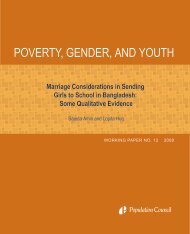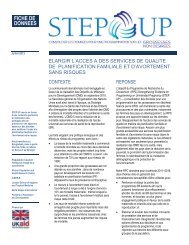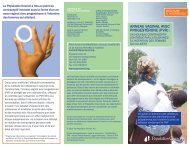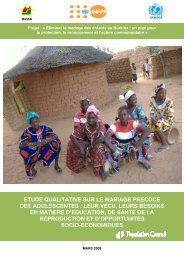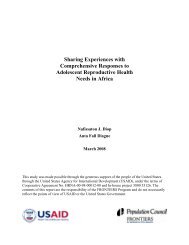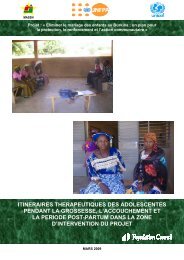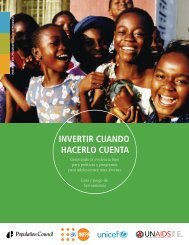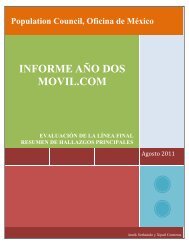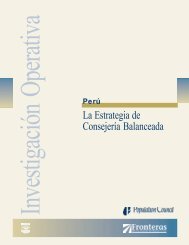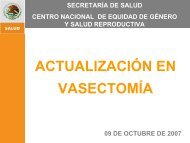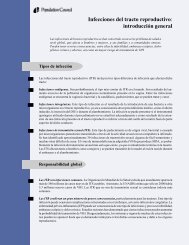Community Health Volunteer's Training Manual - Population Council
Community Health Volunteer's Training Manual - Population Council
Community Health Volunteer's Training Manual - Population Council
Create successful ePaper yourself
Turn your PDF publications into a flip-book with our unique Google optimized e-Paper software.
Module 4 The work of <strong>Community</strong> <strong>Health</strong> Volunteers<br />
210<br />
Box 4.4.7: Danger signs during pregnancy<br />
• Swollen feet, face and hands<br />
• Bleeding from Vagina<br />
• Excessive vomiting<br />
• Anaemia<br />
• Severe headache<br />
• Blurred vision<br />
• Very pale conjuctiva, tongue, palms and nails<br />
• Severe abdominal pains<br />
• Jaundice<br />
• Offensive or discoloured discharge from vagina<br />
• Premature rupture of membranes<br />
As volunteers, it is important for you to realise that you do not have the technical training<br />
or skills to deliver most reproductive and child health services that community members<br />
require. However, CHVs have an important role to play in promoting RCH services<br />
including family planning, antenatal care, and mobilising children under 5 years old for<br />
immunisation.<br />
Topic 3 Expanded Programme on Immunisation<br />
(EPI)<br />
Immunisation is also known as vaccination.<br />
Vaccination protects children against some<br />
dangerous diseases of childhood such as whooping<br />
cough, pertussis diphtheria, tetanus, polio, measles<br />
and tuberculosis. The Expanded Programme on<br />
Immunisation is a global programme to increase the<br />
number of children who are protected against these<br />
dangerous childhood diseases. Children should be<br />
given the different vaccinations during the first months<br />
of life onwards. In Ghana, the EPI vaccinations used<br />
currently are discussed below.<br />
Types of Vaccines for Children<br />
The most important vaccines for children are:<br />
Figure 4.4.1 Illustrates a child<br />
receiving immunisation.<br />
1. Penta Vaccine: Protects the child against diphtheria, whooping cough and tetanus<br />
(DPT), hepatitis B, and heamophilus B influenzae. (For full protection, the child<br />
needs three injections. These are usually given at 6 weeks, 10 weeks and 14 weeks of<br />
age.)



